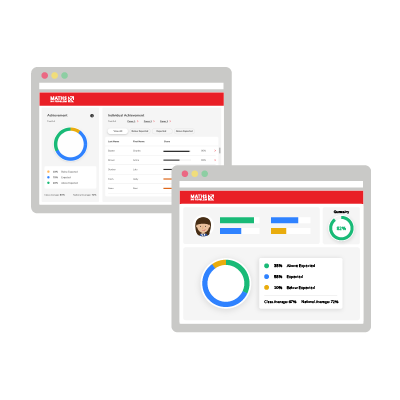What expert maths mastery practitioners think about Assessment for Learning
Editor’s Note:
Transcript has been edited for clarity.
Returning to school with one thing on your mind? We gathered a group of expert practitioners to ask them their thoughts on Assessment for Learning in the primary classroom. Here’s what they had to say.
Daily formative assessment can help you save time, help with lesson planning and marking and make sure you’re responding to where children actually are in their learning rather than where you hope they are.
Make the most of Assessment for Learning with the following insight from expert practitioners.
What does successful Assessment for Learning look like?
From Peter Marriott, Teacher at St Bridget’s C of E Primary School, Wirral:
“I think teachers should be trusted to assess their children in class.“
We read those journals, we read those workbooks every day. You know those children. And that will tell you the information as a teacher and that teacher will do something about it. So I think more teacher assessment and more formative assessment is better than testing.
How should you collect evidence of Assessment for Learning in the classroom?
From Dawn Copping, Headteacher at Shaw Primary Academy, Essex:
“For my staff and my team, the best evidence is hearing from the children.“
Creating the opportunity to talk to them about what they’re learning, what they know now, what they didn’t know, how they know that they’re making progress. For me, the biggest evidence is what is what the children tell you. You know, they don’t hold back.
How regular should Assessment for Learning be?
From Jonathan Evans, Teacher at Manley Park Primary School, Manchester:
“Our formative assessment needs to be more often.“
Certainly in terms of thinking of Assessment for Learning (AfL), we should be doing that each and every day. I guess my personal opinion is that children in primary school are probably assessed too much, too young. We put too much importance on summative assessment. Where actually, we need to be looking at how children are doing day to day and taking away some of the external pressures that exist on schools.
What’s the most important thing to consider when assessing learners?
From Chris Harrison, Associate Director, Centre for Innovation in Teacher Education and Development, King’s College London:
“The most important thing is to think about why you’re assessing. What are you assessing for and how are you going to use that evidence to actually help children’s learning and to help your teachings.“
Quite often, teachers give assessments because they think it’s expected of them and it might give a mark, or it might give some sort of information to other people. And you do need that sort of assessment, but it’s the day to day assessment that feeds into teaching and learning that’s most important.
Transform your maths assessment
Insights — our online assessment tool — gives you instant, powerful data to identify gaps and improve results.
